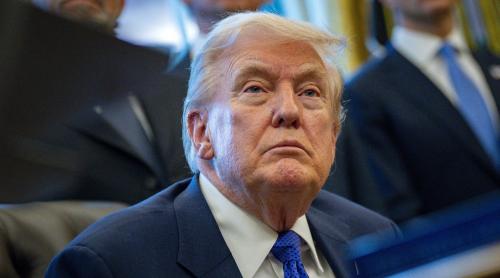
The Romanian Minister of External Affairs, Adrian Cioroianu, stated in Zagreb that Bucharest intends to be a bridge between Serbia and the EU-NATO tandem
The Romanian Minister of External Affairs, Adrian Cioroianu, stated in Zagreb that Bucharest intends to be a bridge between Serbia and the EU-NATO tandem in order to renew the seriously damaged relationships caused by the independence of the Kosovo province. “Romania is member of EU and NATO and is able to send the messages of Serbia for the two organizations and for the member states”, Cioroianu stated in an interview for the France Press correspondent. In the context in which Serbia withdrew all its ambassadors from the countries that agreed with the independence proclaimed by the Albanese leaders in Kosovo on the 17th of February, Romania starts proposing. “We could present the preoccupations and the expectations of our partners to the Serbians”, Cioroianu said.
SERBIA HAS FRIENDS
Since Romania together with Spain and Cyprus didn’t agree with the independence of Kosovo, Cioroianu says “we are not the only friend of Serbia in the EU, and Belgrade doesn’t have reasons to feel abandoned”. He qualified the dialogue between Serbia and Romania as “sincere and pragmatic”.
The head of the Romanian diplomacy said the “EU states have the same opinion regarding the future of Serbia” and added that “he hoped Belgrade will receive very clear signals showing a European perspective as soon as possible”. France Press reminds that Belgrade wants the adherence to the European Union, but the negotiations regarding this matter have stopped. As far as the relationship with NATO is concerned, Serbia is a member of the Partnership for Peace, a military cooperation formula proposed by NATO that is considered as a preparatory step for the adherence.
NEXT STEP
Since Bucharest is getting ready to host the North-Atlantic summit at the beginning of April, Minister Cioroianu suggested that Zagreb, Skopje and Tirana could receive an invitation to adhere as well as the fact that “the relation of NATO with Serbia, Bosnia and Montenegro should get to the next step”. In order to clarify Romania’s position regarding Kosovo, the Romanian Minister emphasized that “Bucharest was not against the decision of independence, but against unilaterally proclaimed independence”. “Romania’s opposition regarding the Kosovo independence doesn’t have to be understood as a pro-Serbian or anti-Kosovo attitude. This is about principles, about respecting the current international laws that impose the agreement of both sides” in such a situation, Cioroianu added.
The Bulgarians aren’t happier either
The Bulgarian Minister of External Affairs, Ivailo Kalfin, and the President of the External Politics Commission in the Parliament, Solomon Passi, have been involved in a dispute regarding Bulgaria’s position in the Kosovo case, according to Mediapol.bg. Passi, former Minister of External Affairs in the former Cabinet led by Simeon de Saxa-Coburg, says Bulgaria should agree with the independence of Kosovo immediately and to send an ambassador in Pristina, according to Btv. Kalfin had a more moderate position stating that it was too soon for Bulgaria to assign an ambassador for Kosovo since such a decision must be taken only after establishing the format of the future Bulgarian mission in the new state. Even though Kalfin said last week he would propose to “establish relations” with the new republic, the Socialist Party that has the majority in the Government postponed the final decision regarding the new state until Pristina would have a Constitution and other essential laws. Passi stated he hoped to see an “evolution of Bulgaria’s position in the Kosovo case” until the end of the month.
• Translated by Sorin Bălan

















